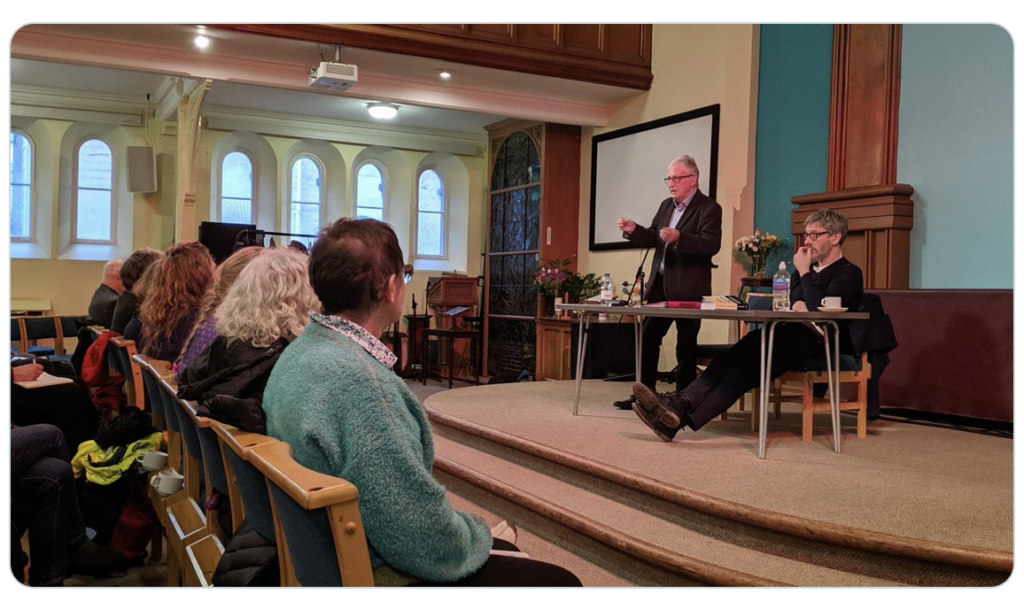“Barnet Council’s draft Equality Impact Assessment is fundamentally inadequate because it does not assess the impact of the two options on the equality groups and assumes no negative impact. But there is a world of difference in terms and conditions, particularly pensions, between being transferred to the Council and being transferred to a Local Authority Controlled Company which currently does not exist and will be modelled on other Council arms length companies that have inferior terms and conditions. Therefore the Equality Impact Assessment must be rewritten.”
Dexter Whitfield
“Why, why, why are Barnet Council making this crisis worse? The contractor is dumping the contract through no fault of the staff. All the staff want hear from Barnet Council are these two little words “Welcome Back”. The evidence for returning the hard working Education and Skills workforce is contained within the Joint Trade Union report written By Dexter Whitfield.”
John Burgess Branch Secretary, Barnet UNISON.
It is clear that the best option is for Education and Skills to return the council. Employment will be less attractive with an LACC resulting in it being harder to recruit and retain the experienced staff required and this can only mean an inferior service for schools and the young people of Barnet.
Keith Nason, Secretary Barnet NEU.
“The comparison of key criteria in this report makes it clear to the advantages of an in-house option and I encourage GMB members’ to read this detailed report.
Outsourcing has been bad news for Barnet staff. Time and time again, we have seen private providers fail to deliver while members’ terms and conditions and national agreements have been undermined.
GMB are clear that it is better value for services such as this to be brought back in-house.”
Mary Goodson, GMB Barnet Branch Secretary & Krissy O’Hagan, GMB London Region Organiser.
The following Trade Unions representing workers from Cambridge Education have worked together with their members and Dexter Whitfield to produce a report to Barnet Council.
- UNISON
- NEU
- GMB
- NASUWT
- Association of Educational Psychologists (AEP)
Summary of the report
The two options of in-house provision or establishing new Local Authority Controlled Company (LACC) are examined using 12 key criteria (see Table 1) with in-house provision having significant advantages over the latter.
1.The Council’s draft Equalities Impact Assessment is significantly flawed because it concludes there is ‘No Impact’ for any of the equality groups when in fact there is a Positive Impact for all equality groups with the in-house option but a Major Negative Impact for all equality groups with the LACC option.
2. We have examined the ability of Education and Skills to retain and recruit qualified and experienced staff and conclude that the continuity of service and quality of pension schemes are fundamentally important. The LACC option fails on both these criteria.
3. A sustainable motivated workforce to provide the range and quality of services required by schools, parents and children for their physical and mental health is dependent on the retention of the existing staff and the recruitment of new qualified and experienced staff is critically important to ensure high quality services for Barnet Schools.
4. A divided, demoralised workforce as a result of a differential in terms and conditions combined with an inability to retain and recruit qualified staff is inherent in the LACC model and will have a long lasting negative impact in education and the community.
5. The Council has failed to prepare a full Equality Impact Assessment for the consultation process.
6. The Council has stated that the Equality Impact Assessment and the full business case will only be completed after the consultation feedback deadline of 4pm 3 July 2020. This contradicts Government policy set out in the Green Book, and ignores over a decade of established custom and practice in Barnet and is likely to fail to take full account of key and other unforeseen emerging issues.
7. The multinational Mott MacDonald’s use of the Force Majeure contract clause raises many questions given that Barnet’s Education and Skills contract represented just 0.23% of the company’s £771m annual turnover in 2019. The fact that all local authorities with education responsibilities, teachers and parents are confronted by the same impact of COVID-19 raises questions over the real motives of this decision.
Recommendations
1. We strongly recommend that Barnet Council transfers Education and Skills staff from Cambridge Education back to direct employment in the Council.
2. We recommend that the contract management functions of the ISS catering contract, which is going to be novated to the Council, are established in the Education Department.
Download the full report https://www.european-services-strategy.org.uk/why-barnets-education-and-skills-must-be-an-in-house-service




